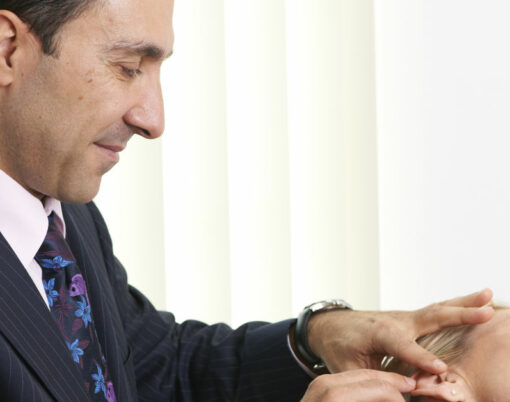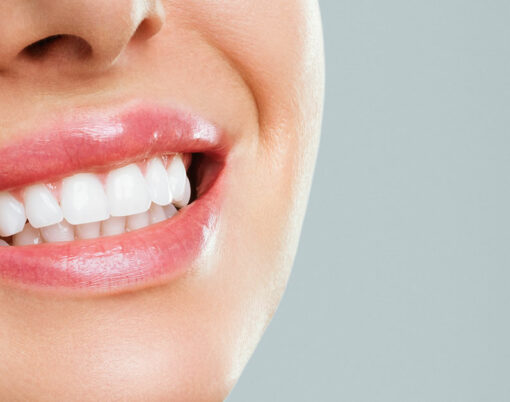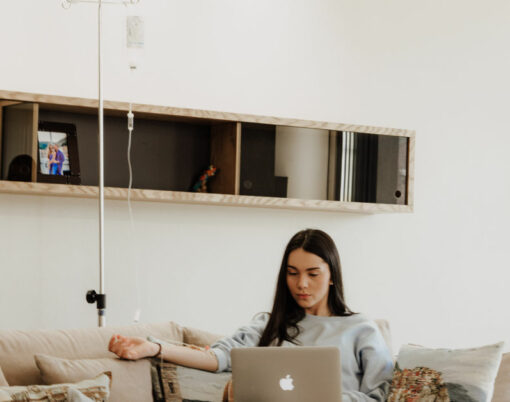After a trying year that has put health at the front and centre of our minds due to the ongoing Covid-19 pandemic, the current vaccine rollout and roadmap out of lockdown is giving us plenty of reasons to feel more positive. But if there is one thing the pandemic has highlighted, it’s the importance of looking after ourselves, whatever happens to be going on in the world – and more of us than ever are now looking to overhaul our diet and fitness routines and take more care of our physical and mental wellbeing.
From kicking bad habits to getting a better night’s sleep, there are a multitude of different ways in which we could all be doing a little bit better in the health department, but if your lifestyle needs a complete and utter rethink then it can be overwhelming trying to work out where to start. But with a few simple steps, you can be feeling back to your vibrant best in no time, and living your healthiest ever life – all it takes is a few small changes and you’ll be well equipped to face whatever life has to throw at you in the future.
Try these easy ways to get the ball rolling in 2021.
Overhaul your bedtime routine

Not getting enough quality shut-eye? The issues that can come with this can go far beyond simply feeling a little tired and lethargic during the day, and if left unchecked, can have a detrimental impact on our overall health and wellbeing. Numerous global studies have highlighted a worldwide sleep shortage, with nearly 67 per cent of all adults in the UK reporting disrupted sleep and a worrying 25 per cent getting less than five consecutive hours each night. Long-term, sleep deprivation can lead to mood changes and memory issues, weaken your immune system and put you at risk from conditions such as diabetes and high blood pressure.
Some simple ways to prepare yourself for a better night’s sleep include taking a warm bath or shower and banning blue light-emitting devices such as mobile phones and tablets from the bedroom for at least an hour before lights out. Ensure that your bedroom is a comfortable temperature before you drift off, so that you don’t find yourself waking up sweating or shivering in the night, and avoid eating heavy meals close to bedtime, as digestive issues such as acid reflux can disrupt a good night’s sleep.
If the issue persists, then see your GP, who will be able to provide some additional advice and recommend any necessary treatments.
Beat bad habits

Vices and bad habits may seem like small issues in the grand scheme of things, and when we’re eating well and working out often it feels easy enough to brush them off as insignificant. But habits such as excessive alcohol consumption, smoking and overeating can all easily undo all of your good work if you’re not careful, posing a substantial risk to your health. So, if you’ve had an inkling that it might be time to tackle yours, then there’s no time like the present – so sit down and take an honest look at which vices you have and which ones you’re willing to work on first.
The key to success here is getting the help and support you need, so confide in a friend or family member who you can trust and book an appointment to see your GP. They will be able to advise you on how best to proceed, and may be able to refer you to a therapist who can help you to work on your mindset – not just the physical vice itself.
If you’re a smoker wanting to quit, for example, then nicotine products such as Killapods nicotine pouches can help you to wean yourself off the cigarettes. Meanwhile, CBT has been shown to assist with overeating and help with binge eating. The approach you take will very much depend on what the bad habit is you are dealing with, so it always pays to seek advice from the professionals.
Monitor your vital statistics

As you age, it becomes more important than ever to stay on top of key health measures such as blood pressure and cholesterol, so regular check-ups at your GP are essential.
If you’re over 30, then consider investing in a digital home blood pressure monitor to keep track of yours – the standard normal is 120/80 mmHg, so use this as a benchmark. If yours is lower, then this is generally OK as it tends to rise with age – but anything above 135/85 mmHg and it’s wise to see your GP. High blood pressure is a major risk factor when it comes to heart attacks and strokes, so it’s important not to leave it unchecked.
Cholesterol should also be monitored regularly. Your HDL cardioprotective cholesterol is an important level to keep on top of – it helps to protect your heart, so if yours is low then you can take an Omega-3 supplement daily for a simple boost. On the other hand, if your LDL (‘bad’) cholesterol is above 2.6mmol/L then it’s time to take steps to reduce this. Your GP will be able to advise on the best approach.
Find time to be kind to yourself

Self care has become something of a buzz word in recent years, but nonetheless, many of us are still failing to set aside sufficient time to refill our cups. This has been especially true over the past year, with the need to juggle working from home with home schooling putting extra pressure on parents in particular, but taking just a few minutes out each day to reset can work wonders for your mental health and wellbeing.
Try carving out some time to yourself each morning to meditate or practice a little gentle yoga, or take yourself out for a walk in nature at lunchtime. Looking after your physical health is important, but if you don’t take care of your mental health too, then you won’t be in a position to prioritise either – so take preventative action now while you can and give your mind the boost it needs.






















